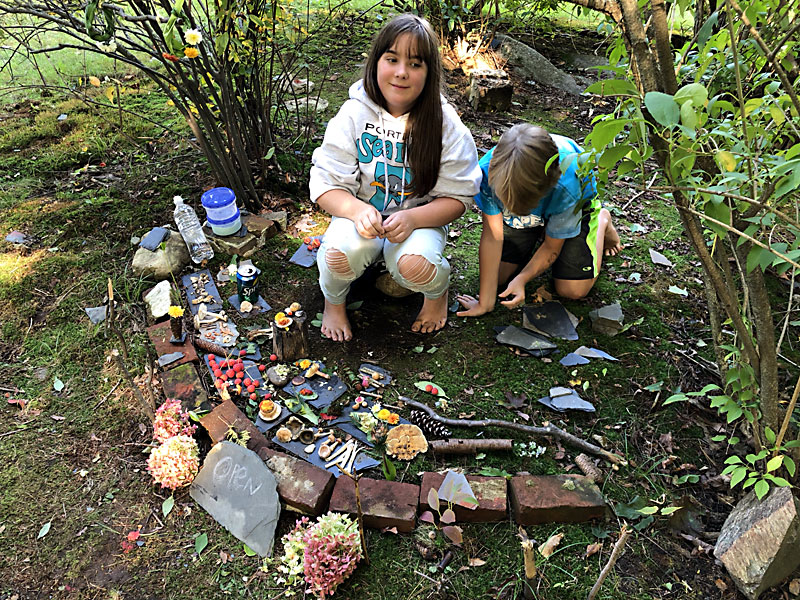Most educators profess, as one of their goals, a desire to change the world. This has been trumpeted as a goal of educators for hundreds or even thousands of years, and is virtually a defining goal of modern education. The very words “change the world” are used in the mission statements of schools at every level and of every cultural or political stripe, and particularly of schools of education.
We're told that education will reduce unemployment. We're told that education will stop war. We're told that education will reduce ethnic or religious discrimination. We're told that education will reduce wage inequality. We're told that education will increase productivity. There is, supposedly, no real or imagined human problem that won't be solved -- in the next generation -- if children spend enough time in school.
Sudbury schools are very focused on the future. Some people might expect that Sudbury schools, with their eyes on the future, would aim to change the world. But, in fact, Sudbury schools are virtually alone in having no desire to change the world. Instead, Sudbury schools are focused on being institutionally prepared for the future, rather than on changing the future. Sudbury schools are focused on caring for children, rather than on changing them.
For a school to deliberately change the future, the school would have to deliberately change what people choose to do and how people choose to live. When educators try to use education to change the future, they must have specific end results in mind for how they want their students to be different than the prior generation.
From the point of view of a child, there is a specific problem with adults or schools that aim to change the world: If the adults in the school get it into their heads that I may not naturally follow their prescription for the future, they will take direct action to coerce, cajole, seduce, or threaten me to be different. This is at the heart of the coercive model that pervades all education outside of Sudbury schooling. Because those other schools have a particular end result that they are aiming for with each child, those schools need to ensure that their curricula are followed. They do so with a clean conscience, because they are content that changing the world is more important than treating me humanely or respecting me as an independent person.
Sudbury schools practice pluralism. All types of people come to the school, and all types of people leave the school with our love and respect. Sudbury schools provide safe and pleasant environments for people to grow up. They do not have particular ends in mind about how those persons should grow up; they do not have curricula.
Every day, we rely on the natural genius of our students to navigate the world of ideas. They discuss, play with, think about, and consider ideas. They try, accept, and reject different ideas. They build and test models of the world, and ideas about how to live their own lives. Far from minimizing differences between people, pluralism allows our students to develop into all sorts of different people, and to develop deep respect for one another and those differences.
Pluralism is a sort of humility. It is a state in which each of the members of a culture agrees to entertain the possibility that s/he may be wrong about anything, however certain s/he is about being right, in order to be granted the same respect by others in the community. A pluralistic government tries not to decide any topic that it doesn't have to decide; and tolerates dissent on all matters -- even on those matters which have been clearly decided -- so long as the rules enacted by the government are followed.
At its heart, any effort to change the world is political because it presumes a particular way in which the world should be changed. A community which is devoted to the free market of ideas will work to resolve problems before it, but will not presume to actively form or change the next generation. This is precisely why our students leave able to navigate a rapidly changing world, and able to respond and change the world around them as needed.


